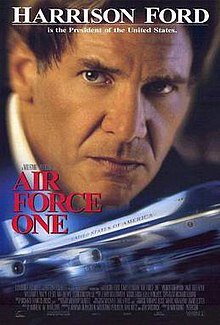Kerri Battles the AFI’s Top 100 – #97: Blade Runner

I feel the need to be open and honest here, right from the start. There are about 7 different versions of Blade Runner. I could have cheated and chosen the best version available (presumably, “The Final Cut,†which is essentially the director’s cut, but not the one labeled “The Director’s Cut” because, apparently, Ridley Scott had nothing to do with that one) in order to make this experience less painful, but that would defeat the purpose of this exercise. Instead, for everyone else’s benefit but mine, I opted to watch the 1982 theatrical release version because that’s the one on the god damned list. After the fact, I’m quite uncertain as to why the AFI chose this version, but I am now 100% clear on why Ridley Scott felt the need to have it recut. Twice.
If you’re unfamiliar with what would become arguably one of the most important science fiction films of all time, let me break it down for you. Based on the novel Do Androids Dream of Electric Sheep? by Philip K. Dick, Blade Runner is set in a post-apocalyptic Los Angeles in 2019 where Androids are a thing, but they’re called Replicants. They’re used only for off-world slave labor and are illegal to have on Earth. If they are found on Earth, special cops, called Blade Runners for reasons unclear to everyone everywhere, are sent after them to “retire†them for good. Harrison Ford plays Rick Deckard, a former blade runner called back to duty for one last mission – retire some rogue super-Replicants (Nexus-6 models) who have slaughtered a bunch of people to get back to Earth. These particular models are extra dangerous because, due to a design flaw, they’ve developed feelings, something a replicant should never have, and they lack the life experience to adequately process and cope with these feelings, hence the murder sprees. The designers thought this might be a problem, because of course they did, so, instead of actually fixing it, they just gave the Nexus-6 model a fail-safe: a 4-year life span.

“I don’t care if it doesn’t appear in the novel and I stole it from a Burroughs poem about guys who smuggle surgical instruments and it doesn’t make any sense for a cop who hunts androids. Blade Runner SOUNDS cool, so that’s what we’re going with.

Fun Fact: Harrison Ford never made a bad movie before 1998, with 6 Days, 7 Nights, and he never made a good one again (until 2013, depending on your opinion of 42).
By all reasoning, the problem shouldn’t have been Ridley Scott, either. While there are some things on his IMDb I’ve never even heard of, I think we can all agree that those are far outweighed by the titles that are recognizable. Now those. Those are some iconic, well-made films. Whatever mistakes he might have made while finding his feet as a director, I’m pretty sure the guy who made Alien, Legend, Thelma & Louise, Gladiator and Black Hawk Down — films that were each given their own vivid visual signature — would never deign to slap a voice-over on top of pivotal and poignant scenes in order to detail, at length, the inner emotional turmoil and growth of our hero. Based on his other films, Scott just doesn’t strike me as the type of director prone to insulting the intelligence of his audience.

Harrison Ford, though, would totally insult the intelligence of his audience. ALL. DAMN. DAY.
Because Ridley Scott should know better and because it was so achingly awful, I did extensive, detailed research on this voice-over issue. Ultimately, Google told me that Hollywood Executives were heavy-handed in the editing process and, as Google is the closest thing to an omniscient entity in existence, She’s probably not wrong. It makes sense. My immediate reaction to this version was disappointment. I wanted it to be great. I still want it to be great. IT SHOULD HAVE BEEN GREAT. Ridley Scott paid obsessive-compulsive attention to detail and created a living, breathing world that was engrossing and absorbing. Sadly, that world crumbled every time Harrison Ford’s God-voice heaved a wearied sigh and trudged through its lines. If that’s how I felt as the viewer, I can only imagine how Ridley Scott felt as the director. It’s no wonder the man revisited the project to try to salvage it. Twice. It wasn’t like when George Lucas shit all over our collective childhood by CGI’ing Hayden Christensen as Anakin/Vader’s ghost into the end of Jedi for non-sensical, rage-inducing, probably-gobs-of-money-based reasons. This sounds more like a guy trying to undo the hatchet job that was done to his art, probably by some suit named Johnson who was awarded a corner office for his gruesome efforts. I get why the AFI listed Blade Runner on the Top 100. What I don’t understand is why they didn’t add a simple footnote that just said, “Not that shit the studio put out in ’82, though.”

This whole post was really just a thinly-veiled excuse to google pictures of Harrison Ford. — KS
